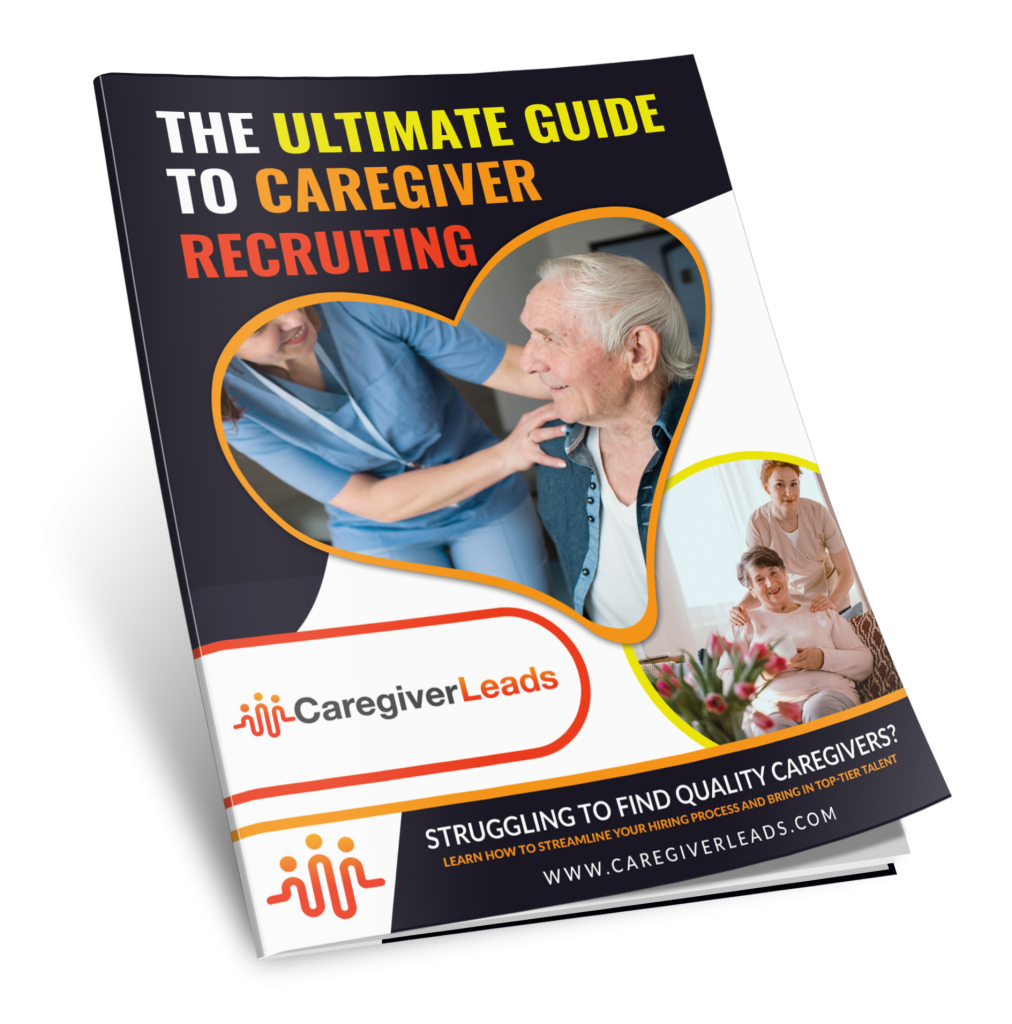Hiring caregivers is one of the most pressing challenges for home care agencies today. The demand for compassionate, qualified professionals continues to grow as families seek reliable support for aging loved ones. Yet, many agencies struggle to keep up with limited applicant pools, high turnover rates, and outdated hiring processes that often slow things down.
This is where data-driven marketing for caregiver recruitment proves its value. By turning recruitment into a measurable, organized system, agencies gain the ability to hire more effectively and reduce wasted time. From automated follow-ups to structured pipelines, data-driven strategies ensure agencies connect with the right caregivers at the right time.
In this blog, we’ll explore why caregiver recruitment is so difficult, how data-driven caregiver marketing can make hiring smarter, and what benefits agencies gain from implementing these strategies.
The Growing Challenge of Caregiver Recruitment
The need for caregivers is increasing, but finding and keeping them has become harder. Agencies face:
- High competition: Many organizations are trying to attract the same qualified professionals.
- Turnover concerns: Caregivers may leave positions quickly, forcing agencies to restart the process.
- Manual inefficiencies: Without technology, agencies often rely on spreadsheets, emails, and phone calls that take too much time.
- Missed follow-ups: When agencies cannot respond quickly, strong candidates often move on to other opportunities.
Recruitment challenges don’t impact the agency; they directly affect families waiting for consistent, reliable care. That’s why data-driven marketing for caregiver recruitment has become an essential strategy.
Why Data-Driven Marketing Matters in Caregiver Recruitment
Unlike traditional methods, which rely heavily on intuition or word-of-mouth, data-driven marketing for caregiver recruitment relies on measurable insights. Agencies can track every step of the hiring process, from initial contact to onboarding.
This approach matters because it provides clarity. Agencies know which outreach methods bring the best results. Timeliness: Caregivers receive fast responses, improving their experience and increasing their likelihood of committing. Consistency: Instead of irregular communication, candidates stay engaged through structured touchpoints. Performance metrics: Leaders can see what’s working, what’s not, and adjust accordingly.
Data-driven marketing creates predictability in an industry where unpredictability often causes setbacks.
Smarter Recruitment with Automated Systems
Manual hiring processes are no longer enough. Relying solely on emails, voicemails, or stacks of paper applications slows recruitment and frustrates both staff and candidates. A smarter way forward is through automated caregiver recruitment systems.
Key Benefits of Automation:
- Automated Follow-Ups: Every caregiver lead receives timely reminders and updates without manual effort. This ensures candidates don’t feel ignored, and agencies don’t lose valuable applicants.
- Centralized Candidate Tracking: Instead of scattered notes, everything is organized in one structured system. Agencies can quickly check the status of each caregiver lead.
- Real-Time Monitoring Recruitment managers can instantly see which stages of the hiring process are moving smoothly and where improvements are needed.
By adopting automation, agencies save time, reduce stress, and improve the caregiver experience from the very beginning.
Building a Continuous Pipeline of Caregiver Leads
Recruitment should not be a stop-and-start process. Agencies that wait until they have an urgent need often scramble to fill positions, which increases the risk of hiring the wrong candidates. Data-driven caregiver recruitment solves this problem by helping agencies build a continuous pipeline of caregiver leads.
This pipeline is created by capturing and storing caregiver information in one system. Nurturing potential caregivers with ongoing engagement, even if they aren’t ready to apply immediately. Segmenting leads based on their interests, availability, or qualifications.
The result is a reliable talent pool that agencies can draw from whenever a position opens. This consistent pipeline reduces stress and improves hiring stability.
Advantages of Data-Driven Marketing for Recruitment
Agencies that invest in data-driven marketing for caregiver recruitment experience significant advantages.
- Efficiency in Hiring: With automation, agencies can move more quickly from application to onboarding.
- Improved Accuracy: Data insights help match the right caregivers to the right roles.
- Reduced Costs: By streamlining processes, agencies save money spent on lengthy recruitment cycles.
- Scalable Systems: As agencies grow, structured systems can handle larger candidate volumes.
- Competitive Edge: Agencies that respond quickly to caregiver leads gain an advantage over competitors.
When combined, these benefits not only make recruitment smoother but also help agencies deliver better care to families.
How Data-Driven Recruitment Strengthens Caregiver Retention
Recruitment doesn’t end with hiring. Retention is equally important. Agencies that embrace data-driven caregiver recruitment often see improved retention rates because caregivers feel valued through timely communication. Agencies can track which hires stay the longest and refine hiring practices accordingly. Continuous engagement builds loyalty and trust.
By improving both recruitment and retention, agencies reduce the need to start from scratch repeatedly.
The Future of Caregiver Recruitment
As the caregiving industry continues to expand, agencies that rely solely on traditional hiring methods will fall behind. Data-driven marketing for caregiver recruitment represents the future where recruitment is measurable, not guesswork. Caregivers experience consistent, professional communication. Agencies reduce turnover and improve hiring speed. Families enjoy better caregiver matches.
In short, data-driven strategies make recruitment sustainable, scalable, and more effective in the long term.
Final Thought
Hiring caregivers will always present challenges, but data-driven marketing for caregiver recruitment changes the way agencies approach this process. By using automation, structured pipelines, and performance insights, agencies can recruit smarter, faster, and with greater consistency.
The result is stronger caregiver pipelines, happier candidates, and better service for families who rely on dependable care.
Ready to Strengthen Your Recruitment Strategy?
Discover how Caregiver Leads supports agencies in building stronger caregiver pipelines through smarter, data-driven recruitment. Visit Caregiver Leads today and learn how data-driven marketing can make hiring more efficient and effective.
FAQs
- What is data-driven marketing for caregiver recruitment?
It’s a structured approach that uses automation, tracking, and performance insights to improve caregiver hiring outcomes.
- Why do agencies struggle to recruit caregivers?
Common challenges include high turnover, a limited pool of qualified candidates, and manual hiring processes that waste time.
- How does automation improve caregiver recruitment?
Automation ensures caregivers receive timely follow-ups, organizes candidate information, and reduces administrative workloads.
- What benefits do agencies gain from data-driven recruitment?
They gain faster hiring, improved caregiver quality, reduced costs, and more predictable results.
- Can smaller agencies benefit from this approach?
Yes. Even small agencies can create a structured pipeline of caregiver leads and improve hiring efficiency by using data-driven strategies.



